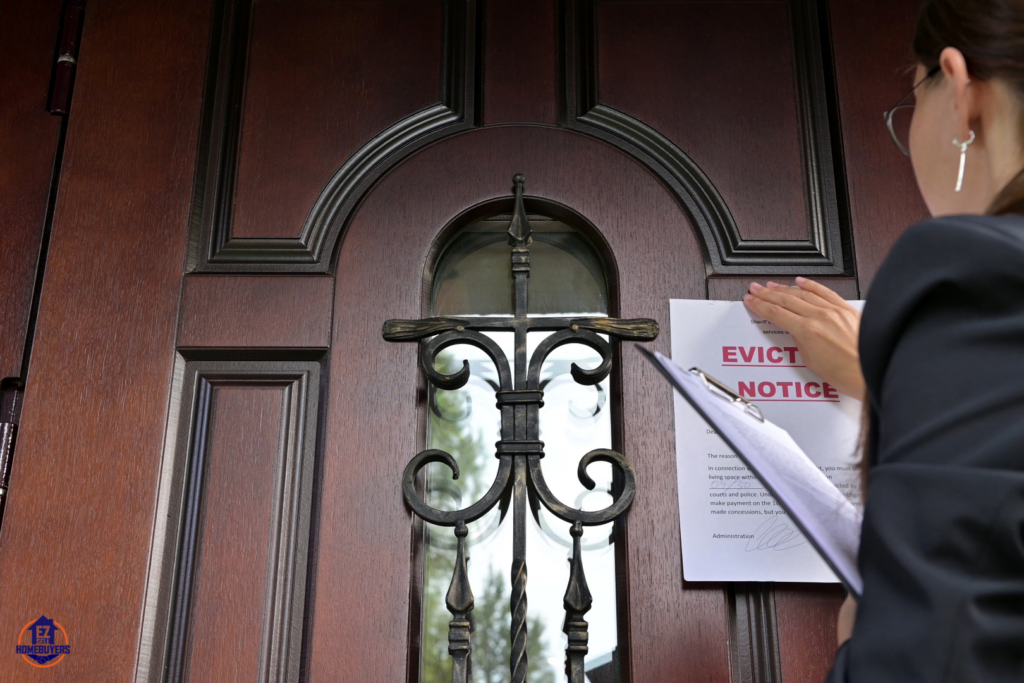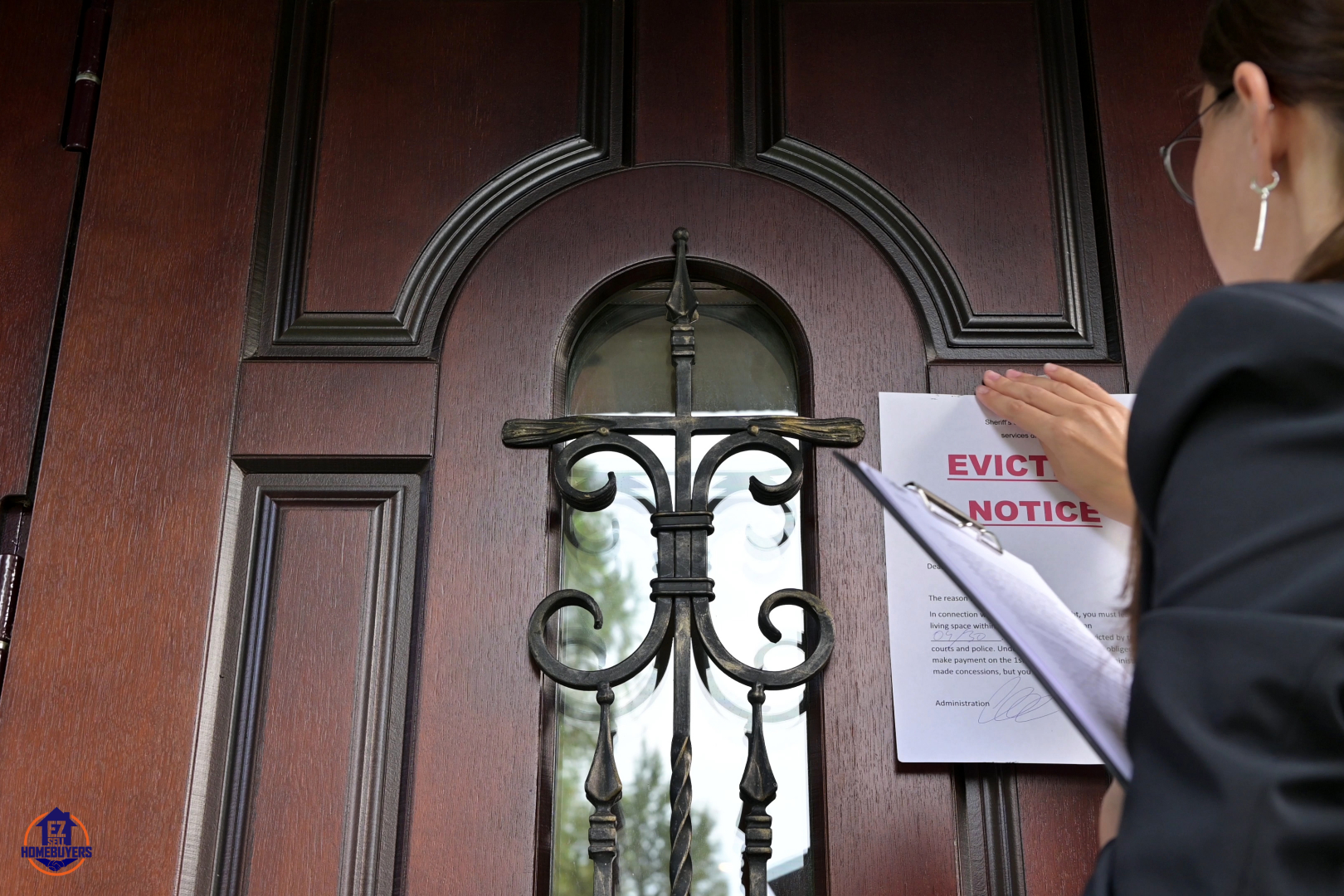As a veteran real estate investor specializing in Dayton and its suburbs, I have encountered numerous challenges with squatters—individuals who occupy properties without any legal right. These unauthorized occupants can lead to significant legal and logistical complications. This guide is crafted to help property owners understand the essential steps for legally removing squatters and preventing future incidents.

Understanding Squatter Rights in Ohio
Ohio’s adverse possession laws can sometimes allow squatters to claim rights to a property after a continuous occupation under specific conditions. It’s crucial for property owners in Dayton to grasp these laws thoroughly to navigate squatter issues effectively. Familiarizing yourself with these laws is the first step in the eviction process.
Identify the Presence of Squatters
Detecting squatters early is key to handling the situation efficiently. Regular inspections of your property can help identify unauthorized occupants before they establish any potential rights. Signs to look for include tampered locks, unexpected utility usage, or unfamiliar personal items on the property.
Legal Steps to Remove Squatters
From my extensive experience, here are the effective legal steps I recommend:
- Notify Law Enforcement: Contact the Dayton Police Department as soon as you discover squatters. While they often view it as a civil issue, their presence can encourage squatters to leave voluntarily.
- Issue a Notice to Vacate: Under Ohio Revised Code 1923.04, it’s mandatory for property owners to issue a formal notice to vacate. Draft a clear eviction notice with a firm deadline, ensuring it is prominently posted on the property or delivered personally.
- File an Eviction Action: If the squatters do not comply with the notice, the next step is to file an eviction lawsuit at your local courthouse, complete with proof of ownership and evidence that the notice was served correctly. Guidance on filing can be found on the Dayton Court’s official website.
- Court Hearing and Judgment: Present your case against the squatters at the court hearing. A favorable ruling will result in a legal mandate for the eviction of the squatters.
- Enforce the Eviction: Armed with a court order, enlist the sheriff’s department to physically remove the squatters if they have not voluntarily vacated the property.
Preventing Squatter Settlements
Preventative measures are crucial. Here are some effective strategies I employ:
- Regular Inspections: Schedule regular visits to check for signs of unauthorized entry.
- Security Measures: Install advanced security systems, including high-grade locks and surveillance cameras.
- Property Maintenance: Keep your property well-maintained; a tidy property is less appealing to squatters.
- Neighbor Engagement: Encourage neighbors to report any unusual activities.
Alternative Solutions: Selling to a Cash Investor
In some cases, managing a property with squatter issues can become overly burdensome. Selling the property to a cash investor may be a viable solution. Cash investors typically buy properties “as-is,” allowing you to quickly divest and avoid the complexities of squatter removal. This option not only provides immediate relief but also transfers the responsibility of legal dealings to someone with potentially more experience in handling such issues.
Conclusion
Removing squatters in Dayton requires understanding local laws and adopting a methodical approach to the eviction process. By taking proactive measures and acting swiftly when squatters are detected, property owners can safeguard their rights and restore their properties. Should the situation become untenable, remember that selling to a cash investor is a practical option for quickly resolving property disputes.
This guide is designed to empower Dayton property owners with the knowledge and tools necessary to effectively address and prevent unauthorized occupancy. Maintaining control of your property is crucial, not only to protect your investment but also to contribute to the safety and well-being of the entire community.
Comprehensive FAQ on Removing Squatters in Dayton, Ohio: Legal Tips and Preventive Measures
1. What are squatter rights in Ohio?
Squatter rights, or adverse possession laws in Ohio, allow individuals to claim legal ownership of a property if they occupy it continuously for a specific period under certain conditions, without the permission of the original owner.
2. How can I identify squatters on my property?
Regular inspections are crucial. Look for signs such as tampered locks, unexpected utility usage, or unfamiliar personal items. These indicators can help you detect unauthorized occupants early.
3. What should I do first if I find squatters on my property?
The first step is to contact the Dayton Police Department. Although they might consider it a civil matter, police presence often encourages squatters to vacate the property.
4. How do I legally notify squatters that they must leave?
You must issue a formal notice to vacate according to Ohio law. This notice should clearly state the deadline by which the squatters need to leave and must be delivered in person or posted prominently on the property.
5. What if the squatters ignore the notice to vacate?
If squatters do not leave after receiving the notice, you will need to file an eviction lawsuit at your local courthouse. Ensure you have proof of ownership and documentation that the squatters were given the notice.
6. What happens during the court hearing for eviction?
During the court hearing, you will present your case against the squatters. If the court rules in your favor, a judgment for eviction will be issued.
7. How is the eviction enforced if squatters still don’t leave?
With a court order, you can request the sheriff’s department to physically remove the squatters from your property.
8. What are some preventative measures to avoid squatter settlements?
Implement regular property inspections, install robust security measures, maintain the property regularly, and engage neighbors to report suspicious activities.
9. Is selling to a cash investor a good option if I have squatter problems?
Selling to a cash investor can be a practical solution if managing squatter issues becomes too burdensome. Cash investors often buy properties “as-is,” allowing for a quick sale without the complexities of removing squatters yourself.
10. How can I ensure my actions are legally compliant when dealing with squatters?
It is advisable to consult with a real estate attorney who specializes in property laws in Ohio. Legal advice will help ensure that all actions taken are in accordance with state laws and regulations.

